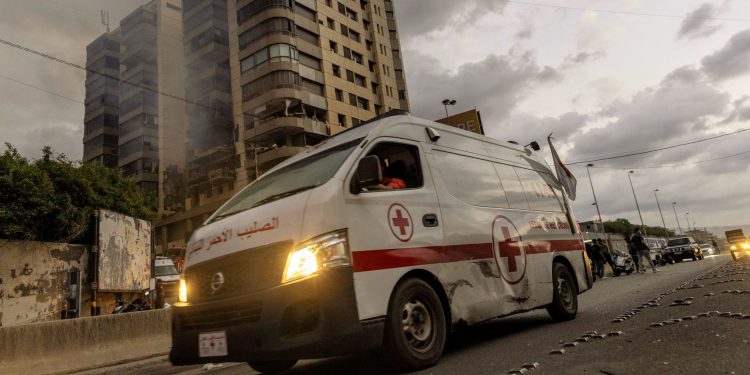The World Health Organization has said it has verified 23 attacks on health care that led to 72 deaths and 43 injuries among health workers and patients since escalation of hostilities in Lebanon on 17 September 2024.
According to the statement released by the Agency recently, revealed that hospitals in Lebanon are already under massive strain in strive to sustain essential health services while dealing with unprecedented influx of injured people.
Fifteen incidents impacted health facilities, while 13 impacted health transport with the understaffed and under-resourced, health system has been struggling to maintain uninterrupted services to all those in need with supplies being depleted and health workers exhausted. Increasing conflict, intense bombardment and insecurity are forcing a growing number of health facilities to shut down, particularly in the south. Out of 207 primary health care centres and dispensaries in conflict-affected areas, 100 are now closed.
Increasing conflict, intense bombardment and insecurity are forcing a growing number of health facilities to shut down, particularly in the south. Out of 207 primary health care centres and dispensaries in conflict-affected areas, 100 are now closed.
Hospitals have had to close or evacuate due to structural damage or their proximity to areas of intense bombardment. As of today, 5 hospitals have been evacuated, another 5 partially evacuated, with critical cancer.
And dialysis patients referred to other hospitals also overwhelmed by increasing health needs. Dialysis centres are having to operate extra three shifts to accommodate the referred patients while being under- resourced for essential blood testing supplies and personnel. WHO Regional Director for the Eastern Mediterranean, Dr Hanan Balkhy said, “The situation in Lebanon is alarming. Attacks on health care debilitate health systems and impede their ability to continue to perform. They also prevent entire communities from accessing health services when they need them the most”.
WHO Regional Director for the Eastern Mediterranean, Dr Hanan Balkhy said, “The situation in Lebanon is alarming. Attacks on health care debilitate health systems and impede their ability to continue to perform. They also prevent entire communities from accessing health services when they need them the most”.
She added that, WHO is working tirelessly with the Ministry of Public Health in Lebanon to address critical gaps and support the continuity of essential health services, but what people of Lebanon need most is an immediate ceasefire.”
Meanwhile, in response to growing needs, WHO is supporting with delivery of essential supplies. On 4th and 5th October, four flights containing medical supplies for trauma care, cholera prevention and mental health treatment arrived from WHO’s logistics hub in Dubai to Beirut.
The supplies, currently being distributed to priority hospitals in coordination with the Ministry of Public Health, are enough to treat around 100 000 patients. WHO is working to bring in additional supplies. WHO continues to coordinate with the Lebanese Red Cross and hospitals to equip blood banks with adequate supplies, including testing supplies to support safe blood donation.
WHO continues to coordinate with the Lebanese Red Cross and hospitals to equip blood banks with adequate supplies, including testing supplies to support safe blood donation.
Surgical trauma capacities, including life-limb saving skills are also being strengthened through war trauma surgery trainings for surgeons of various disciplines.
WHO is also working with Ministry of Public Health of Lebanon to establish trauma centers within the existing referral hospitals and to plan for the deployment of Emergency Medical Teams.
WHO support is ongoing to the ministry’s Epidemiological Surveillance Unit to expand community-based surveillance on priority diseases in shelters hosting displaced people, especially for acute watery diarrhoea, respiratory infections, and other communicable diseases.
WHO is also working to ensure that shelters are linked with primary health centres to support continuation of health services and dispensing essential medications while calling for attacks on health care to stop, says health care should be protected at all times.
23 health care attacks led to 72 deaths verified in Lebanon
Please login to join discussion











